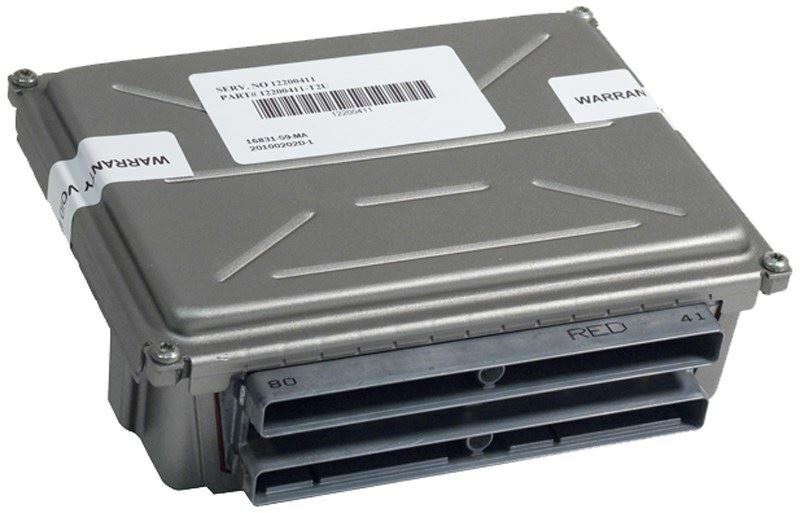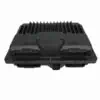Is Your Buick Park Avenue Experiencing Engine or Transmission Problems?
If your 1998 Buick Park Avenue is suffering from erratic behavior like stalling, poor fuel economy, harsh shifting, or the dreaded check engine light that won’t go away, a failing Powertrain Control Module (PCM) could be the culprit. The PCM is the central computer of your vehicle, responsible for managing the engine, transmission, and dozens of other critical systems. When it fails, it can cause a wide range of frustrating and difficult-to-diagnose issues, leaving your vehicle unreliable or even undrivable.
Common Symptoms of a Failing PCM
- ✔ Check Engine Light is illuminated with various communication or sensor codes.
- ✔ Vehicle fails to start or starts intermittently.
- ✔ Noticeable decrease in fuel efficiency.
- ✔ Engine stalling, stumbling, or misfiring while driving.
- ✔ Harsh or erratic automatic transmission shifting.
- ✔ Failure to pass state emissions testing.
- ✔ Communication errors with diagnostic scan tools.
The Direct-Fit Solution for Your 1998 Park Avenue PCM
Don’t let a faulty computer keep your car off the road. This Powertrain Control Module, part number 09356741, is the definitive solution for a wide range of 1998 and 1999 GM vehicles, including your Park Avenue. We take the guesswork out of the repair by pre-programming the module specifically for your car. Simply provide us with your vehicle’s 17-digit Vehicle Identification Number (VIN) after your purchase, and our technicians will flash the unit with the latest, most stable software updates directly from GM. This ensures that the module communicates flawlessly with your vehicle’s existing systems, restoring original performance and reliability.
This module is a direct replacement for service numbers 09356741, 16236757, 9357034, 9357440, and 9366314, guaranteeing compatibility and proper function. The programming process accounts for your vehicle’s specific engine, transmission, and factory options, making installation as straightforward as possible. In most cases, after installation, you may only need to perform a simple security relearn procedure, which can often be done without special tools.
Wide-Ranging GM Compatibility
While this is the correct 1998 Park Avenue PCM, its versatile architecture allows it to be the central control unit for many other popular GM vehicles from that era. This includes models like the Buick LeSabre, Century, and Regal; Chevrolet Lumina, Monte Carlo, and Camaro; Pontiac Grand Prix, Grand Am, and Firebird; and Oldsmobile Cutlass, Alero, and Intrigue. Please refer to the detailed fitment list to confirm this part is correct for your specific make, model, and engine combination.
Frequently Asked Questions
What is VIN programming?
VIN programming is the process of loading your vehicle’s specific software and calibration files onto the PCM. This ensures the module works correctly with your engine, transmission, and options like anti-lock brakes and cruise control. We handle this for you before shipping.
How do I provide my VIN?
After you complete your purchase, you can send us a message with your 17-digit VIN. You can find your VIN on your vehicle’s dashboard (visible through the windshield), on the driver’s side door jamb sticker, or on your insurance and registration documents.
Will I need to do anything else after installing this PCM?
In many GM vehicles of this era, you may need to perform a security relearn procedure (also known as a VATS relearn) to sync the new PCM with your vehicle’s anti-theft system. This procedure typically involves turning the key to the ‘ON’ position for 10-15 minutes, then off, and repeating the cycle three times. Instructions are readily available online for your specific model.
Is this a plug-and-play part?
Because we program it to your VIN, it is as close to plug-and-play as possible. You will need to physically install the module and may need to perform the security relearn mentioned above. No dealership visit for programming is required.
How do I know if my PCM is truly the problem?
While the symptoms listed are common for PCM failure, it’s always best to have a qualified mechanic perform a full diagnostic. This includes checking for trouble codes, verifying power and ground signals at the PCM, and ruling out other potential causes like faulty sensors or wiring issues.


